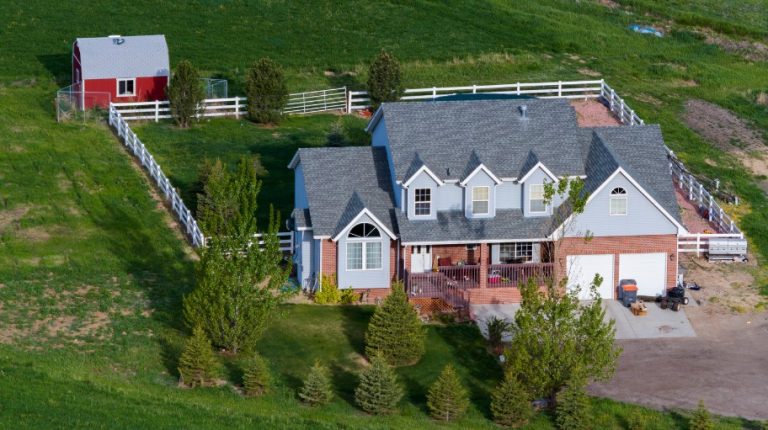When a neighbour begins building work without a party wall agreement, it can cause stress, uncertainty, and potential legal problems for the adjoining property owner.
Under the Party Wall Act 1996, neighbours are legally obliged to notify and secure consent before undertaking specific types of work near or on a shared boundary. Unfortunately, many homeowners remain unaware of these obligations or choose to proceed without regard for the law.
This article explores what steps can be taken if your neighbour starts work without a party wall agreement, your legal rights, and how best to handle such situations diplomatically and lawfully.
What Is The Party Wall Act 1996 And Why Is It Important?

The Party Wall Act 1996 is a legal framework introduced to prevent disputes between neighbours when construction work affects shared or adjoining walls.
This Act applies across England and Wales and is especially relevant in urban settings where properties are closely situated.
Its main purpose is to create clear rules for carrying out specific building works that might impact neighbouring properties.
Understanding Its Scope And Legal Framework
The Act requires that neighbours are informed about and, in many cases, agree to construction work involving:
- Building a wall at or near the boundary line between two properties
- Cutting into or altering a shared (party) wall
- Excavating near a neighbour’s property
This legislation ensures that neighbours are aware of any work that might affect their property, giving them time to object or appoint a surveyor to assess potential risks.
When Does The Party Wall Act Apply?
Property owners planning to carry out the following types of work are required to notify adjoining owners:
- Loft conversions that require cutting into a shared wall
- Building an extension close to or on the boundary line
- Demolishing and rebuilding boundary structures
- Excavation within three metres of a neighbour’s foundations
In each case, the law requires a notice period—usually one or two months—depending on the nature of the proposed work.
What Happens If A Neighbour Starts Work Without A Party Wall Agreement?

When a neighbour begins construction without issuing a party wall notice, they are in breach of their legal obligations under the Party Wall Act.
This situation can lead to disputes and may leave the building owner liable for any resulting damages.
The Legal Implications Of Unauthorised Work
If work is carried out without the required agreement, the adjoining owner has several rights under civil law. Though the Act does not impose criminal penalties, the consequences can still be serious. These may include:
- Court-issued injunctions requiring work to stop immediately
- Liability for repairs and damage caused to neighbouring property
- Potential for legal costs to be awarded against the building owner
The courts tend to favour adjoining owners if a dispute arises because the law clearly mandates notice and consent.
Can You Take Action During Construction?
Yes, but timing is critical. If construction has already begun and no agreement was served, the adjoining owner may seek a court injunction to stop the work.
This legal action must be taken quickly to be effective. Delayed response might suggest implied consent or weaken your claim.
A party wall surveyor may also be appointed, either by one party or jointly, to assess the legality and potential impact of the work.
How Should You Respond When You Suspect Unauthorised Work?

Proactively responding to suspected unauthorised work can save both parties from costly legal battles. Often, homeowners are unaware of their obligations and may respond cooperatively once the issue is raised.
Early Warning Signs To Look For
- Builders and contractors working on or near the shared wall
- Equipment or scaffolding erected near the boundary without notice
- Structural changes that seem to involve the party wall
These signs should prompt a conversation or formal response.
Steps To Communicate Diplomatically With Your Neighbour
- Speak to your neighbour to understand the scope of the work
- Politely ask if they are aware of the Party Wall Act
- Share resources or direct them to legal guidance
- Keep a written record of conversations or responses
Keeping communication open and factual is important. Avoiding confrontation can often resolve matters without involving legal professionals.
Can You Stop The Building Work Legally?
Yes, there are legal avenues available if you believe your neighbour is acting outside the Party Wall Act. The most immediate remedy is to apply for an injunction.
When To Apply For An Injunction?
If the work has already begun or is about to start, and no notice was provided, an injunction can legally compel the neighbour to stop until proper procedures are followed. This is particularly useful if the construction poses a risk of structural damage.
Involving A Party Wall Surveyor
A qualified surveyor can be appointed to prepare a party wall award, which outlines how the work should be conducted. If a dispute arises, each party can appoint their own surveyor, or both may agree to use a single surveyor. Surveyors are responsible for producing a legally binding document to prevent and resolve disputes.
What If The Building Work Is Already Completed?

Even if the work is finished, the neighbour may still be held accountable for any harm caused or for ignoring the legal requirement to serve notice. Retrospective actions can be taken under common law.
Seeking Compensation Through Legal Routes
If the work caused damage to your property, you can claim compensation through civil court. The courts have ruled in several cases that failure to serve notice transfers the burden of proof to the builder, who must prove their work did not cause the damage.
For instance, in Roadrunner Properties Ltd v Dean [2004], the Court of Appeal found that the property owner was responsible for proving no damage occurred, which is a significant precedent.
Documenting Damage And Evidence
Before and after photos, written reports from a qualified surveyor, and any communication with your neighbour can support your claim. Maintaining records is essential if legal proceedings become necessary.
Can A Party Wall Agreement Be Made Retrospectively?
Although the Act does not allow notices to be issued after the work has been completed, there are informal solutions that can provide some protection.
Partial Agreements And Contractual Protection
An adjoining owner and the building owner can enter into a written agreement acknowledging the work done. While not recognised as a formal party wall award, it may be enforceable under contract law and provide some recourse in case of future disputes.
The Limitations Of Retrospective Notices
- They do not have legal standing under the Party Wall Act
- They cannot protect against previous damage
- The courts may still impose liability for unauthorised work
What Rights Do Adjoining Owners Have Under The Act?
The Party Wall Act gives adjoining owners several important rights to ensure their property is protected during nearby construction.
Legal Protections And Dispute Resolution
- Right to receive formal notice before work starts
- Right to dissent and appoint an independent surveyor
- Right to compensation for damages caused by the work
The Act encourages early engagement between neighbours to resolve issues before they escalate.
Obligations Of The Building Owner
- Must serve notice at least one or two months in advance depending on the work type
- Must allow the adjoining owner time to respond
- Must cover the cost of surveyors if the adjoining owner dissents
Failure to meet these obligations can result in delays, legal claims, and additional expenses.
How Can A Party Wall Dispute Affect Property Sales?

Ongoing or past disputes with neighbours must be disclosed during the property sale process. Buyers may hesitate if the property has a history of unresolved legal issues.
Disclosure Requirements When Selling
Sellers in the UK must complete the Property Information Form (TA6), which includes questions about disputes with neighbours. Failing to disclose known issues can result in legal consequences or cancellation of the sale.
How Disputes Impact Property Value?
- May reduce offers due to perceived legal risks
- Can lengthen the sales process
- Might lead to requests for indemnity insurance or warranties
Buyers may see unresolved or documented disputes as a red flag, reducing the property’s appeal.
What Are The Most Common Misunderstandings About Party Wall Agreements?
A major reason disputes arise is the mistaken belief that the Party Wall Act only applies in major renovations. In reality, many routine home improvements fall under its scope.
DIY Renovations And Ignorance Of The Law
Homeowners often believe they can undertake work on their own property without involving neighbours. However, if the work impacts a shared wall or involves significant excavation, notice is required.
The Myth That Internal Works Don’t Require Notice
Cutting into a shared wall to insert beams, creating openings, or installing insulation can all qualify as notifiable works under the Act. This misconception frequently leads to accidental non-compliance.
What Professional Help Should You Seek?
If a neighbour begins work without following the Party Wall Act, seeking expert advice is critical. Understanding your legal position and obligations early helps you respond effectively and avoid escalation.
Role Of Surveyors And Solicitors
Surveyors assess whether the Act applies and provide independent judgments. They can produce party wall awards that legally define how work should proceed. Solicitors offer legal advice and assist with injunctions, negotiation, or damage claims.
Estimated Legal Costs And Considerations
Below is a table outlining typical legal and professional costs involved in party wall matters:
| Service Type | Estimated Cost Range (GBP) | Description |
| Party Wall Surveyor (Per Owner) | £700 – £1,500 | Depends on complexity and length of work |
| Solicitor Consultation | £250 – £500 | Initial advice on legal standing and injunctions |
| Injunction Filing | £1,500 – £5,000+ | Emergency court action to stop construction |
These figures may vary based on region, urgency, and case complexity.
FAQs About Neighbours Ignoring the Party Wall Act
What should I do if my neighbour starts digging near my property without notice?
If you notice digging close to your foundations, speak with your neighbour first. If they refuse to cooperate, contact a party wall surveyor or seek legal advice to consider an injunction.
Can I claim for damage if no agreement was in place?
Yes, you can claim under common law if your property has suffered damage due to unauthorised building work.
Is it illegal to build without a party wall agreement?
It is not a criminal offence, but it breaches civil law, and the neighbour may be subject to legal action or compensation claims.
How quickly must I act to stop unauthorised work?
You should act as soon as you become aware of the work. Delay may weaken your legal case for an injunction.
What if the neighbour denies responsibility for damage?
If damage occurs and no agreement was in place, the burden may fall on your neighbour to prove they were not at fault, especially if the court follows similar reasoning as in Roadrunner Properties Ltd v Dean (2004).
Can we settle the matter without going to court?
Yes, informal agreements or involving a surveyor may help resolve issues without litigation. Document everything clearly.
What if I agree to the work informally—do we still need a surveyor?
While it’s not required, having a surveyor helps ensure your rights are protected and reduces the risk of future disputes.






